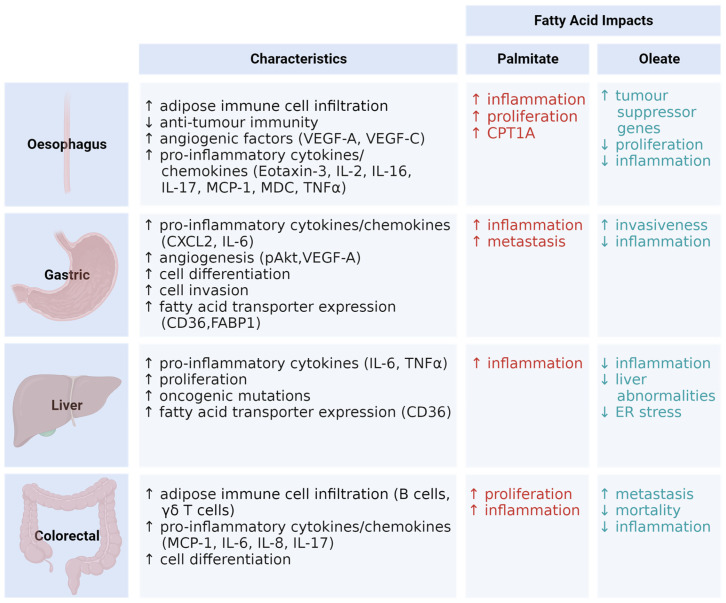Figure 4.
Obese adipose and fatty acid effects on gastrointestinal cancers. Obese adipose increases immune cell infiltration, which then creates a tumorigenic environment on neighbouring gastrointestinal organs including the oesophagus, stomach, liver, and colon. Effects seen are an increase in inflammation, angiogenesis, proliferation, and cell differentiation, which can differ based on the specific organ. Palmitate and oleate have differential effects on oesophageal, gastric, liver, and colorectal cancer. Generally, saturated fatty acid palmitate drives cellular behaviours which may increase a tumorigenic environment to a greater extent than monounsaturated fatty acid oleate. CPT1A, carnitine palmitoyltransferase 1A; CXCL, chemokine (C-X-C motif) ligand; FABP1, fatty-acid binding protein 1; IL, interleukin; MCP-1, monocyte chemoattractant protein-1, MDC, macrophage-derived chemokine; TNFα, tumour necrosis factor alpha; VEGF, vascular endothelial growth factor; ↑, increase; ↓, decrease. This figure was created using Biorender.com (accessed on 7 August 2023).

